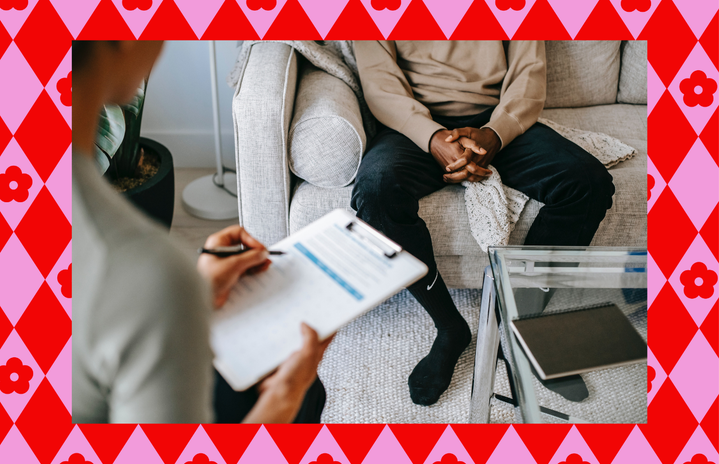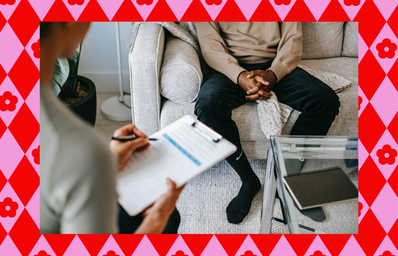For the first time since I started therapy, I feel like I can talk about my experience getting treatment for my mental health issues. I’m not embarrassed to ask my roommates for the space to call my therapist because they’ve asked me the same thing. I don’t hesitate to recommend therapy to family and friends because I believe that everyone can benefit from talking through their feelings and personal struggles with an objective third party, diagnosis or not.
I can’t begin to articulate how grateful I am that the younger generations are destigmatizing therapy and other treatments for mental health. I started therapy in middle school when I was diagnosed with anxiety and OCD. Though I hated it at first (it’s hard to come to terms with your feelings sometimes!), it became such an invaluable resource for me throughout high school and into college. In fact, my mental health improved so much that I stopped therapy entirely, feeling like I didn’t need or benefit from it anymore.
I was wrong. Though my mental health has certainly improved since middle school, and I developed lasting healthy coping mechanisms from years of work, I am not “cured.” And I’ve had to realize that’s okay.
Even though I noticed myself struggling more with managing my anxiety these last few months, I found myself resisting the idea of going back to therapy. Even though I’d completely embraced therapy at that point, I felt that by going back, I would be admitting to myself that there was something wrong with me. That is simply not the case.
Sometimes, life is just more difficult. Whether it’s tough classes, tensions in relationships with family or friends, shifts in careers or moving homes, factors outside of your control might make mental health matters more challenging to manage. That doesn’t mean you’re backsliding or that you’re incompetent. Though it sounds obvious, it can be very difficult to believe. I know from personal experience.
Going to therapy (or, in my case, going back to therapy) can be an extremely useful tool during these times. A therapist is an objective third party whose goal is to help you and provide a place to talk openly. A good therapist will discuss your individual needs and intentions and cultivate your experience to fit those needs, whether you just need a safe place to talk without judgment or you want specific tactics and techniques to ease your anxiety.
That said, it is important to note that some therapists might not fit our needs. I tried three therapists before meeting one that I felt comfortable opening up to. It might take you one. But don’t hesitate to try out multiple therapists and interview them the first time you meet. It helped me to talk to my therapist about what I expected from our sessions and her plans moving forward, but simple intuition goes a long way!
The moral of the story: therapy is for everyone. If there’s anything that Gen Z has taught us, it’s that it’s healthy to be open about our feelings and that it’s better to get help if we’re overwhelmed than to internalize our struggles. We all have them, and we can all benefit from talking through them.


